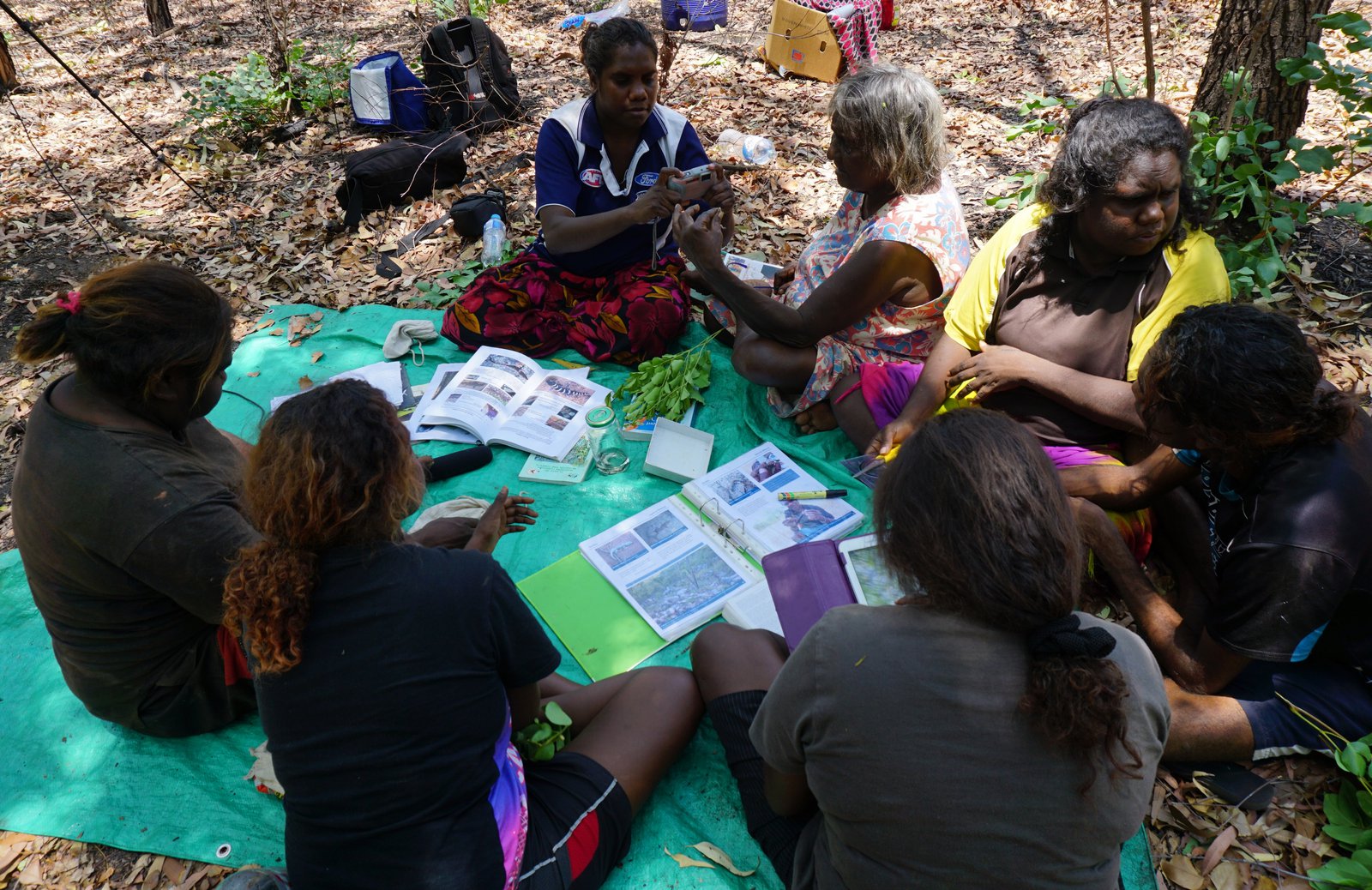Prized connections - combining Indigenous knowledge with Western science
“This work is based on 10 years of collaboration with Ngukurr community in remote Northern Territory. I am so proud our work has been recognised as Innovation in Citizen Science and to have shared the Awards evening with three inspiring young leaders from Ngukurr”, said Dr Emilie Ens following her acceptance of a Department of Industry, Innovation and Science Eureka Prize for Innovation in Citizen Science.

The work of the Ngukurr Wi Stadi Bla Kantri (which means “we study the country” in Kriol) research team combines Indigenous knowledge with Western science and transfers knowledge between generations.
Image: Emilie Ens© supplied by Emilie Ens
Talking about her team’s prize-winning work later, the Macquarie University lecturer recalls the day that Indigenous rangers in southeast Arnhem Land spotted a near-threatened bright orange and blue grasshopper their shouts filled the air.
“We stumbled across the host plant Pityrodia first, and we hoped might see it,” says Emilie. “Then, there it was - a Leichhardt's Grasshopper (Petasida ephippigera). Everyone was very excited because it’s so rare and a great indicator of the health of Country, of good fire management.” Her co-winner, Cherry Wulumirr Daniels (a 73-year-old senior Ngandi woman), had not seen the grasshopper since she was a child, more than 60 years earlier.
The grasshopper was found during a biodiversity survey, one of the project’s core initiatives. The surveys have led to a 140-page field guide of the local flora and fauna, which will be published in seven Indigenous languages, as well as English and Kriol.
The work of the Ngukurr Wi Stadi Bla Kantri (which means “we study the country” in Kriol) research team combines Indigenous knowledge with Western science and transfers knowledge between generations.

The Ngukurr Wi Stadi Bla Kantri team following their acceptance of the 2017 Department of Industry, Innovation and Science Eureka Prize for Innovation in Citizen Science.
Image: Getty© Australian Museum
“We are trying to reach as many people as possible to give them an opportunity to do hands-on scientific research,” Emilie says. “If people learn more about Country and connect more with it, then they can understand some of the threats and want to be involved in its management.”
The Ngukurr Wi Stadi Bla Kantri project has evolved over the past nine years, bringing together the Yugul Mangi Rangers, most of the 1,000 residents of the South East Arnhem Land Aboriginal community of Ngukurr and children at Ngukurr School.
“We involve the school kids through holiday camps and teach the senior classes about plants and animals,” Ens says. “Kids love technology. So we get them to do video recording and use tablets, computers and cameras.”
They also use motion sensor camera traps, cage traps, pitfall traps, Elliott traps and funnel traps to find small mammals, reptiles and frogs. They might also take tissue samples for DNA analysis. “All the field research is linked to Macquarie University and we are publishing journal articles and studies on what we are doing, as well as making videos for our YouTube channel,” Ens says. “We may even have found some new species.”
Based on an article originally written by Melinda Ham for 'Explore' Summer 2017/18.

